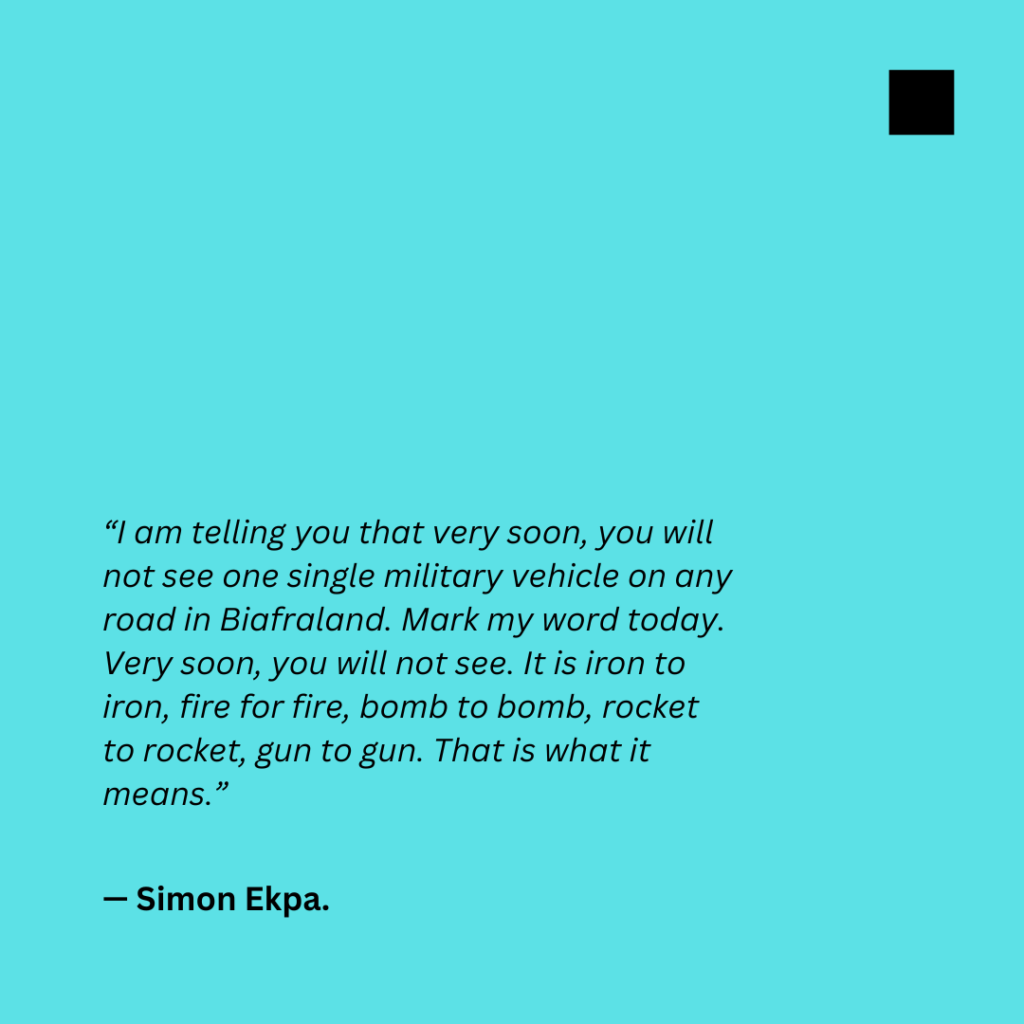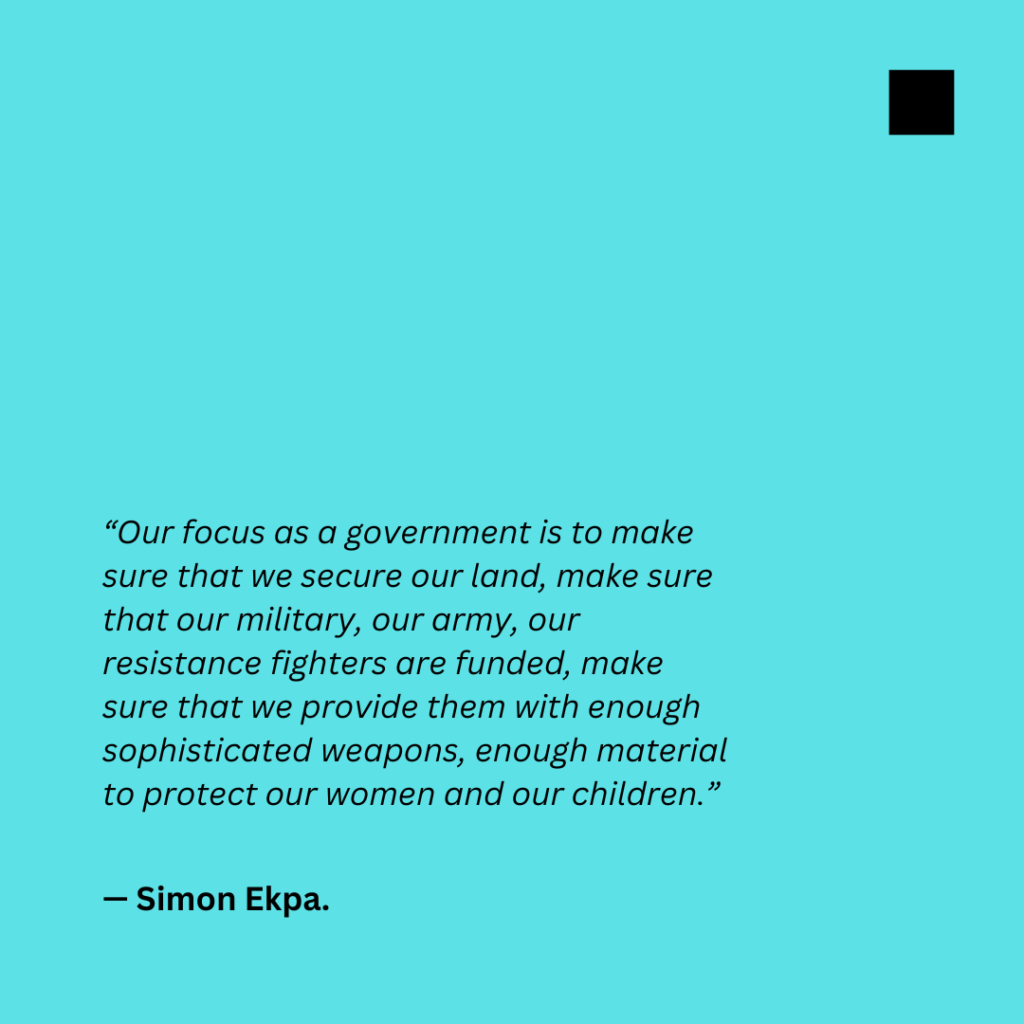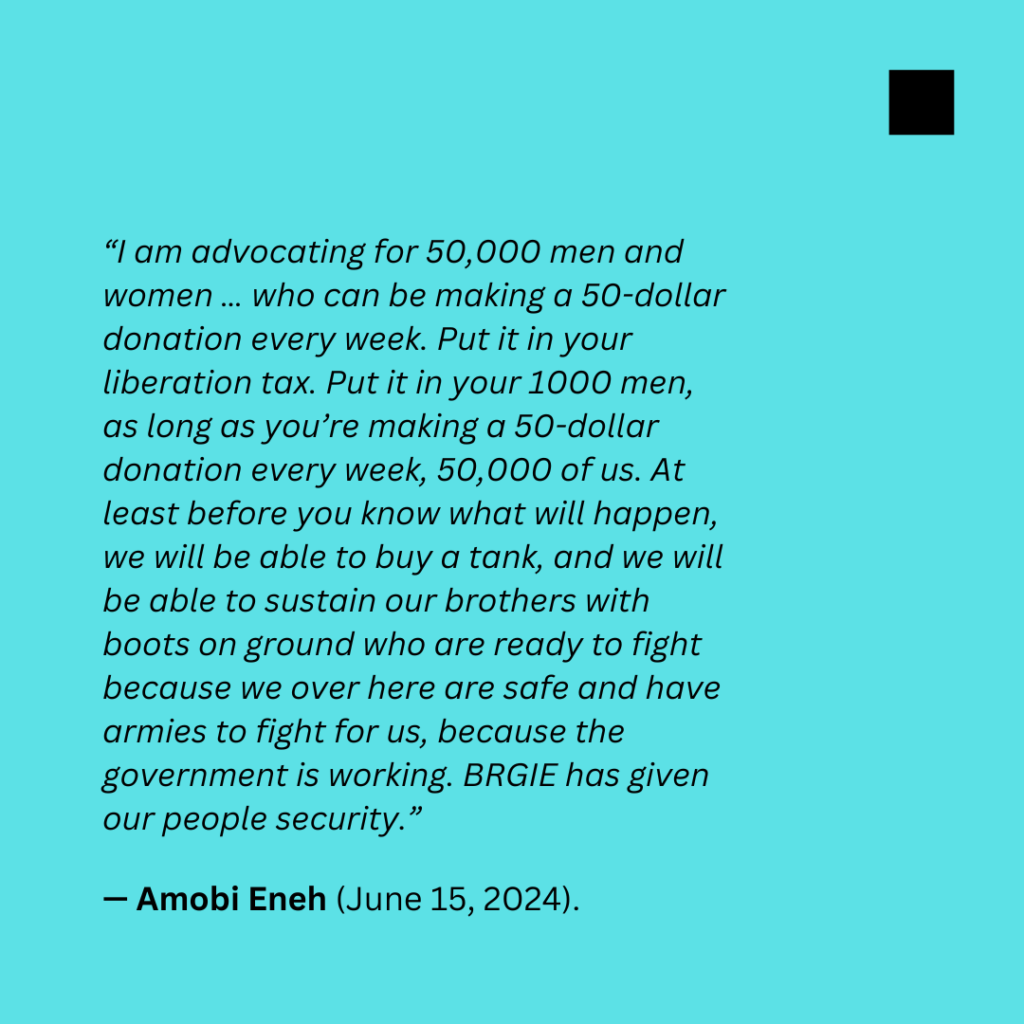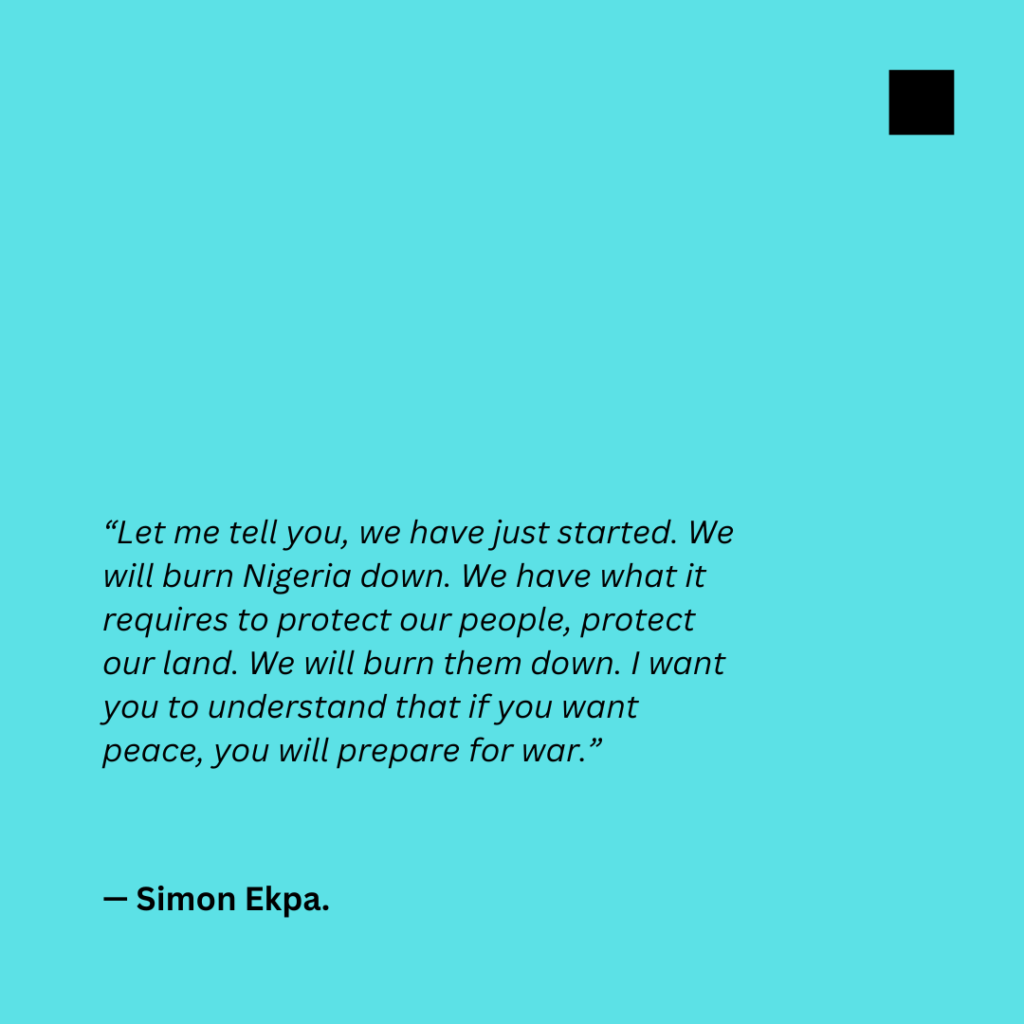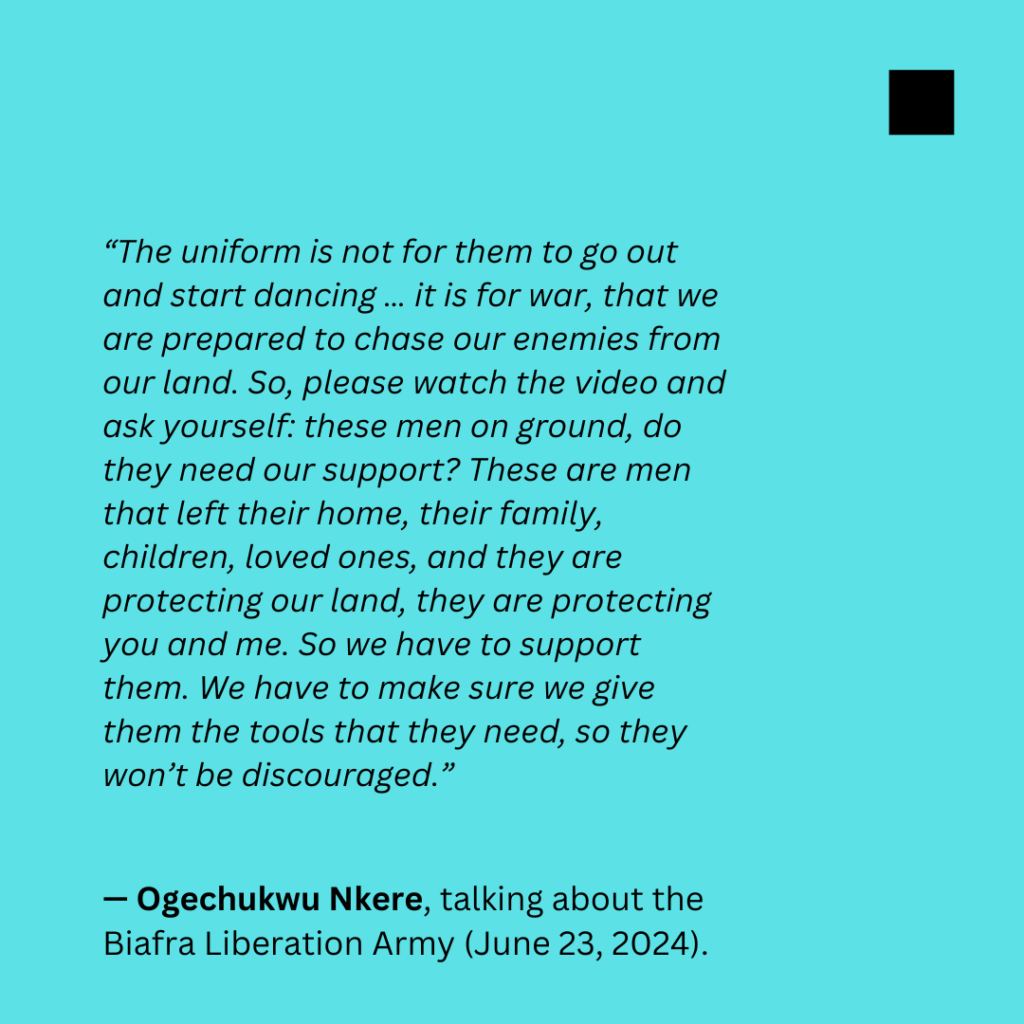On the last Sunday of June this year, members of an armed separatist group in Nigeria assembled for a Zoom meeting. Meetings like this have been held weekly since January to raise money for the group’s activities. They follow the same routine, starting with Land of the Rising Sun, an anthem adopted by Biafra when it broke away from Nigeria half a century ago. Then, they observe a minute silence for ‘fallen heroes’. Then, they play a second anthem used today by the group’s militia. But there was something a bit unusual about this particular meeting on June 30. The ‘Prime Minister’ was present.
About eight minutes in, 39-year-old Simon Ekpa began his address, welcoming participants to this “first special fundraising”. He wore a black t-shirt, a shiny necklace, and a smug smile. Behind him was a digital wallpaper showing the Golden Gate Bridge.
“This one is going to shock the enemy,” he said, still smiling.
“They will be saying, ‘Was it not yesterday there was [another] fundraising?’ Yes o. Even Ukraine is still raising funds, going from one country to another. We have not even controlled our central bank. The World Bank has not even recognised us. And we are fighting a country with a multibillion-dollar GDP and all that. As small as we are, we have shown that we are David. We are killing them, neutralising them with one stone, and we are multiplying. So today, we have come again for this special fundraising.”
Since July 2021, Ekpa has been at the forefront of a campaign to forcefully get Nigeria to break into multiple countries, including the ‘United States of Biafra’. The money raised at this event is meant to put things in place for a convention in Finland later in the year where the group plans to declare the ‘restoration of the state of Biafra’.
Biafra was the name adopted by Nigeria’s Eastern region when it seceded in May 1967. That declaration led to a years-long civil war, which claimed anywhere between 500,000 and three million lives. Most of those deaths were due to starvation caused by a blockade imposed by the federal government. Decades later, the cracks that led to the war and the new ones created by it are still present, and the calls for secession still ripple across the South East.
The country known as Nigeria is a collection of empires, kingdoms, emirates, and communities forced into a marriage of convenience by the British colonial government in the late 19th and early 20th centuries. Today, it is one of the most diverse countries in the world, having the third-highest number of spoken languages after Papua New Guinea and Indonesia. It also boasts hundreds of ethnic groups, the dominant ones being the Hausa and Fulani in the North, the Igbo in the South East, and the Yoruba in the South West.
Ever since the civil war, many Igbo people have felt marginalised. Many think of Biafra with nostalgia and believe they can only reach their full potential under an independent country. In 2013, British-Nigerian Nnamdi Kanu established the Indigenous People of Biafra (IPOB) to advocate for the independence of Biafra, which is imagined to include the southeastern and south-southern regions of Nigeria. The Nigerian authorities reacted by declaring IPOB a terrorist organisation, prosecuting Kanu, and cracking down on his followers. Kanu jumped bail and fled the country after soldiers raided his Abia home in September 2017. In December 2020, he announced the launch of a militia — the Eastern Security Network (ESN) — supposedly to protect civilians. However, the group started attacking security agencies and government institutions. Kanu was captured in Kenya and extradited to face trial the following year. His detention caused IPOB to splinter into different factions — mainly the Directorate of State (DOS) and Autopilot led by Simon Ekpa.
Autopilot has gained notoriety as the more aggressive of the factions. It violently enforces sit-at-home orders that ask people in the South East to remain indoors on Mondays and any other specified period, killing many civilians in the process. It has also claimed responsibility for numerous attacks on Nigeria’s police officers and military personnel.
This faction has now rebranded as the Biafra Republic Government in Exile (BRGIE) — of which Ekpa is ‘Prime Minister’ — and raises money for its operations from thousands of loyalists worldwide using various strategies. One of those tactics is a weekly Zoom fundraising campaign live-streamed on several social media platforms, including Facebook, YouTube, and X/Twitter. Between Jan. 20 and Sept. 29, it held 33 such events, judging from invites shared on Telegram.
HumAngle listened in on six of these fundraising events that took place in June, cumulatively running into roughly 19 and a half hours. Our analysis showed that the group raised about $109,000 (₦182 million) from donations pledged by members across at least 43 countries.
Members based in the United States of America are the biggest donors, and contributions there are usually gathered from different states such as Texas, Maryland, New York, Florida, and so on. Following the U.S. are the United Kingdom, Italy, Canada, Germany, Spain, Israel, and South Africa. The number of donors during the regular weekly fundraising meetings ranged from 219 to 335. (Some country representatives, however, only stated the lump sums without mentioning individual contributions.)
Ignoring its other sources of revenue, if the separatist group raises the same amount every month for a year, that will sum up to $1.3 million (over ₦2.1 billion). While this figure pales when compared to Nigeria’s ₦3.85 trillion security and defence budget, it might help to note that it is roughly 10 per cent of what the Nigerian Army budgeted for mobile gun systems and small arms (₦23.5 billion) in 2024.
The figure is also more than half of what police formations and commands nationwide have budgeted to purchase patrol and operational vehicles (₦3.9 billion). It is more than their recurrent budget for training (₦1.4 billion) or welfare packages (₦1 billion). It is more than 10 per cent of the recurrent budget for security equipment (₦18 billion). And if you decide to spend it on what the police commands have earmarked to buy operational equipment for the Police Mobile Force (₦405 million) and Counter-Terrorism units (₦500 million) and generally buy personal protective gear (₦500 million) this year, you will still have a lot of change to spare.
This investigation reveals that BRGIE’s fundraising is done with the key aim of financing the operations of a militia in southeastern Nigeria. It also shows the various other means through which the group generates money, what it spends this money on, how it maintains influence over its contributing members, and how all these activities lead to a continued loss of lives.
Crowdfunding for weapons
Ekpa’s group does not mince words about what it wants to do with all this money. It uses it to support its militia, the Biafra Defence Forces (BDF) — an umbrella group that includes the Biafra Liberation Army (BLA), Naval Department, Biafra Airforce, and Biafra Resistance Fighters.
Both executives and ordinary members echo this sentiment. During the fundraising meeting on June 29, BRGIE’s state representative for Massachusetts, V.E., joyfully announced that he had received a contribution from another member. “And, erm, you know, additional person means additional money,” the elderly man said, a Biafran flag hanging from the wall and swaying behind him. “It can buy one AK-47. AK-47 wey gbo indi zoo (to kill people from the zoo).”
When Ajaere Raphael, the group’s Deputy Information Minister, heard that the donation was only $50, he replied jokingly that it was not enough to get an AK-47. “Maybe it can get ogboro mgbo (many bullets) for AK,” he clarified. “We need more AK. So, anybody that wants to go and buy the AK will have to go and ask for the price … brand new one.”
During the June 1 fundraising, Raphael challenged Nigeria’s security forces to visit the eastern region. “Go and recruit in their army and come to Biafraland and become ozu nwụrụ anwụ [dead bodies] there. We are no longer in the time of talking stories. We are collecting money to buy weapons, guns, [and] bullets. They are saying another thing. We are buying weapons to fight those that came to kill us,” he declared before urging participants to raise their hands to announce more donations.
Towards the end of the same meeting, Finance Minister Ogechukwu Nkere passionately announced that if it were up to him, no aircraft would be allowed to fly in Nigeria, and everything would be shut down.
“Instead for Biafra not to be restored, the whole world will turn upside down,” he threatened as a female voice thundered ‘yes!’ in the background. “The world will not contain us. We will terrorise more than Hamas if you guys refuse to let us go.”
Ekpa himself has been explicit about their terror tactics many times, and it is likely his brazenness that emboldens other members of the group. When he gave his opening speech during the June 8 fundraising, he bragged about how Nigeria’s security agents “fell in their hundreds … and went back in body bags”.
“No matter how they struggle to destabilise our nation, Biafra will also always resist them. The resistance comes from the fundraising,” he said. “We need the support like never before. If you have supported before with $10, this is the time you will support with $20.”
Prime Minister, who?
Simon Ekpa Njoku has a round, boyish face. But he would be quick to warn you not to let your guard down around him. He lives abroad like many of IPOB’s most prominent figures. He has additionally denounced his Nigerian citizenship. He had moved to Finland in 2007 to advance his sporting career but then decided to stay. He married, had a son, became a citizen, and served in the military. He has also been actively involved in Finnish politics, recently serving as a city councillor and public transport board member.
He became visibly involved in the IPOB movement in 2019. When Nnamdi Kanu was arrested two years later, he anointed Ekpa as the lead broadcaster of Radio Biafra, the group’s main propaganda channel. But Ekpa fell out with other top members of the group, who accused him of refusing to abide by their rules of engagement. Soon afterwards, he launched a rival faction — the BRGIE — which has since gained a reputation for savagery and brazen acts of terrorism.
Ekpa is given to flamboyance in many of his pictures and videos. He has often shared images of himself in military combat uniform, suits, and heavy traditional attires that include a staff, beaded necklaces, and crown. You will also find him sitting on an intricately designed ceremonial chair placed between a pair of massive swords. Deliberately or not, he brands himself as a worthy candidate for some throne.
His imperial persona and doggedness may explain why he has become revered by his followers, many of whom call him the Obata Obie 1 of Biafraland — meaning ‘he whose presence ends every pain/misfortune’.
It is difficult to tell how much influence Ekpa enjoys among the local population — and how much of this influence is borne out of respect. A 2021 survey conducted by SBM Intelligence, a geopolitical research consulting firm, found that even though the sit-at-home protests were observed in the neighbourhoods of 83 per cent of the respondents, only 29 per cent of them fully supported the illegal curfews.
According to a Nigerian researcher who has extensively studied the separatist movement, it is unclear how much of the support is due to general desire and nostalgia for Biafra and how much is from BRGIE’s activities.
“I found that there were more people who genuinely respected Mr Nnamdi Kanu and his IPOB ideals, including professors and eminent professionals, but also the average person,” said the scholar, who asked to be kept anonymous due to the topic’s sensitivity and fear of retaliation.
“For Ekpa and his BRGIE, it is more the case of fear and terror than respect. You could find people who would openly speak about Kanu’s incarceration and his ideologies but would then speak very cautiously (if at all) when it comes to Ekpa. It is hard – at least for me – to draw a straight line from his utterances on social media to any significant civilian collective action in the region.”
He explained that while Ekpa was very influential when he first came to the scene, four factors have whittled down that influence: his call to violence that coincided with the emergence of the ‘Unknown Gunmen’, allegations that he was working with the ruling political party, the economic implications of the sit-at-home orders, and the visible factionalisation within IPOB.
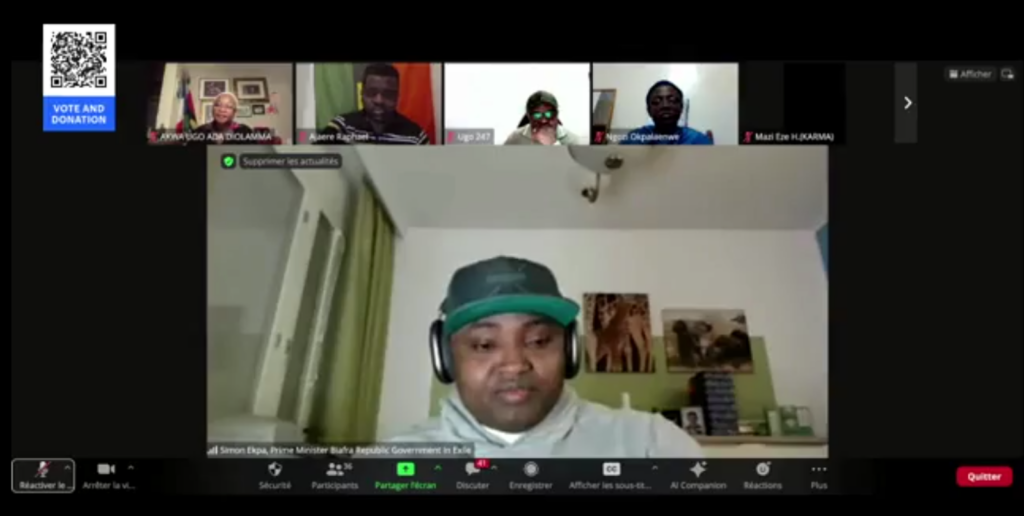
Truncated lives, traumatised families
Away from the bubble of the internet, IPOB’s fundraising events have had dastardly real-life consequences. Violence orchestrated by the group’s members has led to pervasive insecurity and alarming fatalities in the southeastern region.
According to data from the Nigeria Security Tracker, the South East was the safest of Nigeria’s six geopolitical zones in 2012. This remained true until 2020 when the Nnamdi Kanu-led IPOB became militarised and started conducting attacks in the guise of ‘unknown gunmen’. (Ironically, Ekpa’s group now blames insecurity in the region on Nigeria’s security forces and claims to be the one restoring order and protecting the civilians.)
An analysis of statistics gathered by the Armed Conflict Location and Event Data (ACLED) project between Jan. 1, 2019, and June 30, 2024, provided further insights. As of 2020, the South East recorded the lowest death toll of all geopolitical zones. However, between 2021 and 2024, it has consistently recorded the highest number of fatalities in Southern Nigeria — with Anambra and Imo states being the hotbeds.
There have been at least 925 incidents of violence orchestrated by IPOB and Unknown Gunmen (often used as a euphemism for IPOB) in that five-and-a-half-year period. These led to 1,155 deaths. Civilians were targeted in 66 per cent of those attacks, with other major targets including police officers, military personnel, and members of regional security outfit Ebube Agu.
If we widened the net to include all violent incidents in the region involving IPOB and Unknown Gunmen (whichever side of the attack they fall), then the number of events would rise to 1,146 while the number of deaths would become 1,585.
The nature of insecurity in southeastern Nigeria is further complicated by the incorporation of existing criminal gangs and convicts broken out of jail into IPOB’s armed struggle — which may explain an exacerbation in attacks targeting civilians.
There is no shortage of news when it comes to attacks by the separatist group. In May, while enforcing a sit-at-home order, masked IPOB gunmen killed five soldiers and several civilians across different states while also setting vehicles ablaze. One midnight in June, suspected members of the group attacked a Hausa community in Imo and killed six people. There were multiple attacks in August as well, which led to the death of police officers and eight community leaders. In some of the attacks between 2021 and 2022, there were reports and videos of IPOB members beheading and roasting some of their victims, especially security agents and politicians. Many communities in the region — caught between the crossfire of state and non-state forces — have been deserted, occupied only by the aged and the sick.
On the evening of Monday, July 29, during one of the sit-at-home curfews, BLA fighters attacked four police officers at a security checkpoint along Owerri-Onitsha road in Imo state. All four of them were shot dead, with only the driver escaping with injuries. They also killed a POS merchant and shot at civilians in the area.
Two hours later, Ekpa shared a 90-second video recorded by the assailants, showing the assault rifles they seized. “The Biafra Defence Forces Owerri Command has recovered weapons from the terrorists after neutralising them in numbers,” he wrote. “If you think you will continue to use force and terrorism tactics to force us to remain in the union, this will continue to be your faith [sic] in Biafraland.” The factional leader has made a habit of sharing grim pictures of killed security officers — whom he labels terrorists — and celebrating their deaths on X/Twitter.
One of the slain officers in the July attack, 45-year-old Omega Anyawu Emmanuel, left behind a wife and four children. Anyawu Chioma, his widow, had not recovered from the shock six weeks later when HumAngle visited her. “I was crying inside before you came,” she said, her puffy, reddened face bearing her witness.
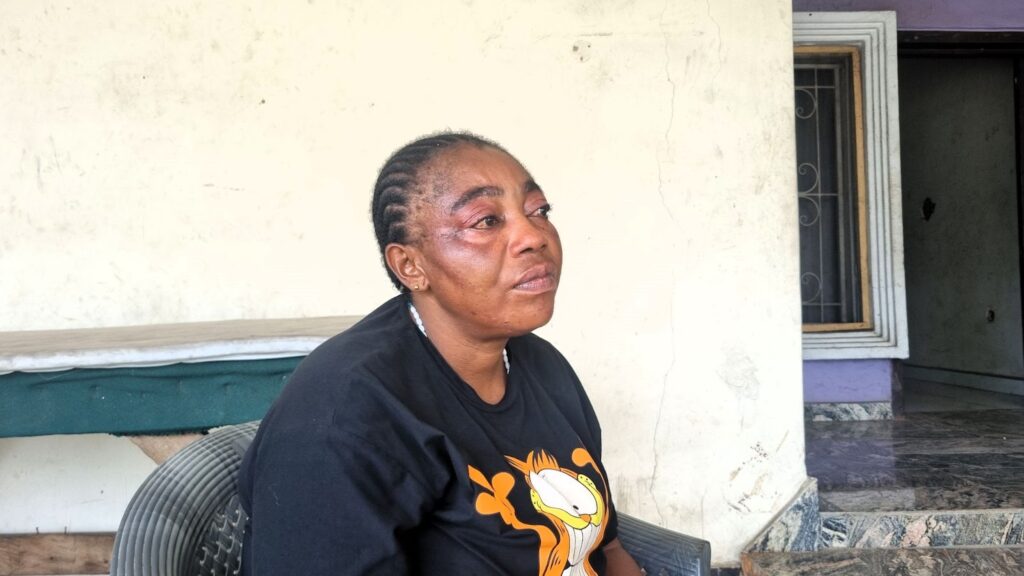
Omega was a brilliant police officer who enjoyed learning. He got into the force using his secondary school leaving certificate but continued funding himself through school and enrolling on different courses, including the International Institute of Journalism. He was also a police prosecutor, highly respected by his colleagues and superiors.
“He has all the books in this world,” Chioma said, originally in pidgin English. “He has bought so many. There was no day he returned from court without bringing along a new book. Anything regarding the police, he has the book. He has even memorised a huge portion of the Police Act. When he stands and talks, everybody will be listening.”
Voices of approaching children breezed in from the distance as she spoke glowingly of her late husband. “The senior one among my children is only nine years old. Look at them coming. Look at them,” she sniffled. “They are still small.”
When they joined us under the porch, she asked one of her children to bring her phone from the room. Once it arrived, she scrolled through her gallery for pictures of Omega’s lifeless body the day they killed him. Then she played a video recorded by a resident of the area after the insurgents had left, sadness ripping through her skin with each moving frame. Most of Omega’s colleagues had been gruesomely shot in the head. He himself was kitted in the black and neon blue police uniform, complete with a bucket hat. He lay face up on the road beside the patrol van’s deflated tyre. He had nothing in his hands, but his fingers were shaped as if he were holding a pen.
Chioma also pulled up Omega’s pictures from before the incident. He is wearing a black suit and tie in most of them. In one, he sits on a chair along a veranda and pensively rests his chin on his right hand, which also holds a pen. With his other hand, he grabs a thin layer of documents, probably for a criminal trial. Everything about the picture screams ambition, intelligence, and confidence. Here is a man who knew his worth and would not settle for less.
This was the more reason Omega’s death met his wife unprepared. She never imagined a day like this would come because how could such a bright prospect be snuffed out so suddenly?
Omega earned ₦183,000 ($110) monthly, and since Chioma was a full-time housewife, the entire family survived on this. They were looking forward to the salary boost that would come with his imminent promotion to the rank of Assistant Superintendent of Police. But now, even the meagre salary is no longer available. The pro-Biafran assailants went away with Omega’s belongings, including his phone, and found a way to withdraw his August salary after it was deposited. When she asked the police for help to track the insurgents using the phone line, they told her to block the number instead.

Chioma endlessly teared up as she described the difficulty of her situation. Omega’s body was still in the morgue because she did not have the finances required for his funeral. School had resumed, and she had still not found any place with tuition that she could afford. On top of that, the three-bedroom apartment they live in was provided by the government because of her late husband’s role in the police. Now that he’s no more, she’s certain they would soon be asked to leave.
“Am I going to look for food? Am I going to look for school fees? Where will I start from?” she wailed, her words bubbling below a sea of tears, almost inaudible.
She hopes for three things now: support to set up a grocery store, cooperation from the police authorities when she requests her husband’s pension and gratuity, and a place to stay.
“You can include it in your write-up—shelter for my kids. I don’t have anywhere to stay,” she pleaded tearfully. “He was just starting to build. He never laid any block. He planned to do it, but it was just the foundation he had started this year in the village.”
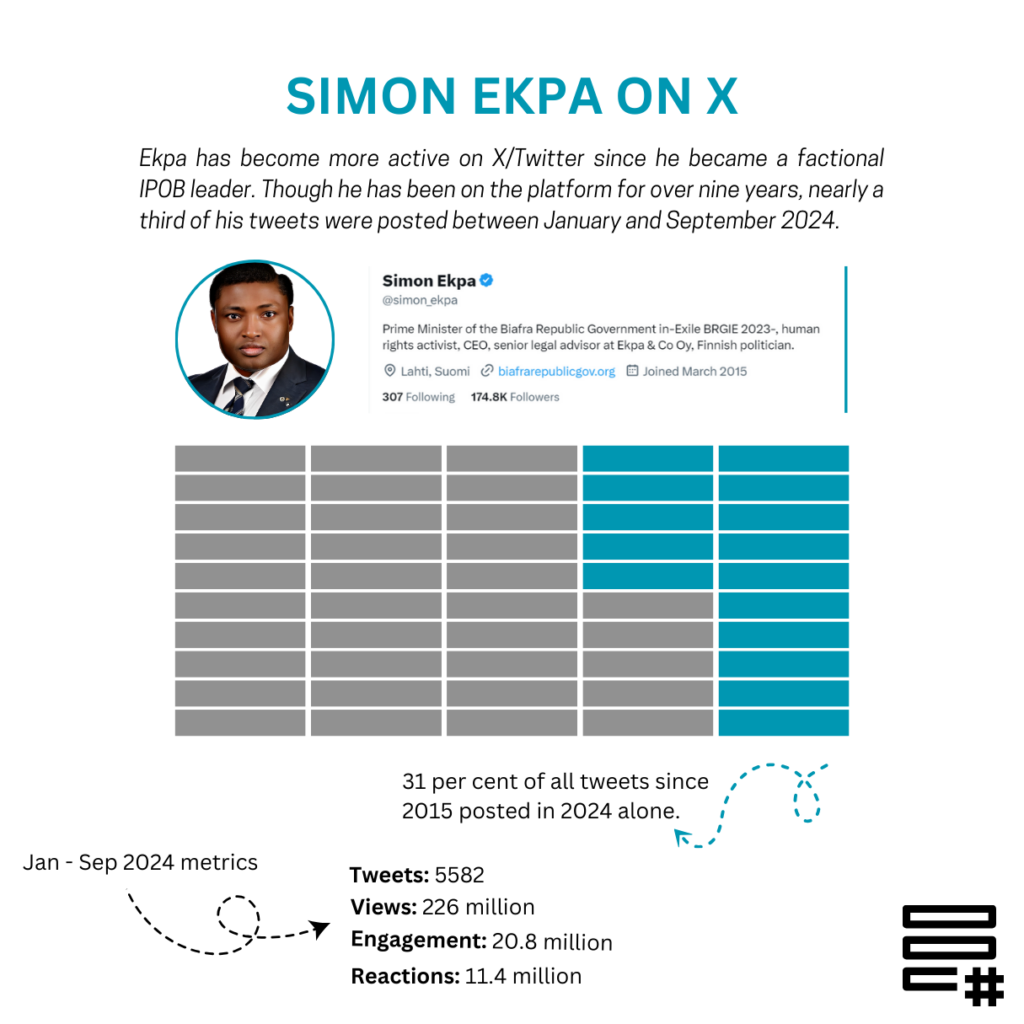
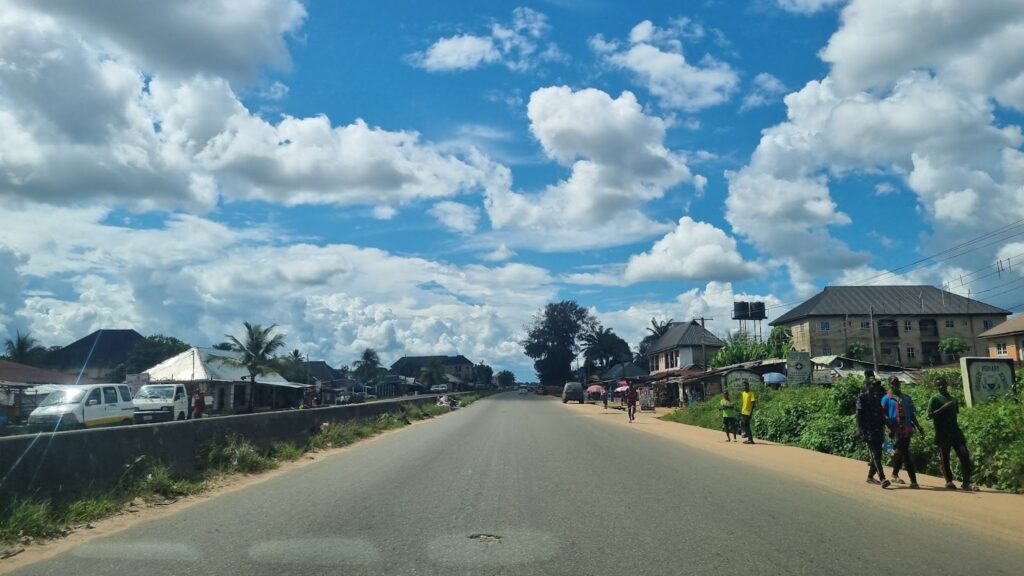
Officers at the frontlines
Owerri, the capital city of Imo state, has been called many things: city of fun, ngwori (enjoyment) town, Nigeria’s entertainment capital, and so on. You easily get the picture.
However, the city with never a dull moment started to lose its vibrancy since the emergence of the pro-Biafran militia. Many of its rich residents have moved out, fearing they might be kidnapped. Businesses shut down on Mondays and every other curfew day, fearing they might be attacked. Even police officers in some parts of the outskirts have abandoned their uniforms, preferring to go to work in mufti as this gives them an extra layer of protection. Others are trying to redeploy from the region, preferably to Nigeria’s South West.
There is no doubt that IPOB enjoys massive support among people in the region, making it difficult for security agents to identify their enemies and those giving them information. They could be anywhere. They, on the other hand, stick out like a sore thumb and are vulnerable to attacks. They are targeted at security checkpoints, in police stations, or while in a convoy. Nowhere is safe, too. In April 2021, IPOB militants led by one of their commanders who goes by the nom de guerre ‘Dragon’ launched an attack on the police headquarters, prison, and government house in Owerri.
Felix (not real name), a police officer who is part of the joint task force carrying out regular offensives against the insurgents, has lost many of his colleagues to the crisis. The first time he was part of a raid on their camp in 2021, the militants killed a police sergeant who had set a date for his traditional marriage. He himself sustained bullet injuries in his arm and foot.
There were always casualties every month when they attacked IPOB’s forest camps, he said. This is especially because of the improvised explosive devices (IEDs) planted on the routes. They put obstructions on the road to prevent the passage of the Armoured Personnel Carrier. They also fall palm trees in strategic places to trap the security agents and prevent them from escaping with their vehicles.
“Even a few months ago, when we went there on operation, I witnessed at least six soldiers who first stepped on the mines, how the thing disfigured them, and I don’t think those soldiers will make it. These are things you don’t see in the newspaper or on the TV screen. Many men have paid [the supreme] price and on a monthly basis — both military, police, and other security agencies.”
Felix believes the crisis has gone on for this long because it is profitable for the pro-Biafran militia.
“All these things happen because of unemployment. The youth are facing hardship, so their members will be advising that they should come and join them, that they have a new source of livelihood for them. And once they partake in that kidnapping, armed robbery, and other things they are doing, and it is successful, they will be having more finance, making the efforts of the security agencies and the government not to be successful.”
While the insurgents have access to millions of Naira for equipment and other needs, police officers complain that the government constantly disregards their welfare. Their salaries are not enough to pay rent and can barely buy a bag of rice in the current economy, they said. When Felix got shot by insurgents in 2021, he recalled painfully that he had to pay for his treatment using his own salary.
“I know what I passed through. Nobody checked on me. Nobody asked how I was doing. I spent months in the hospital till I recovered.”
He added that many of their weapons are up to 40 years old. “You go fire some, e get level wey heat go reach, e no go pick again. You go leave am and [say] ‘toh’, find your way,” his colleague, Desmond, chipped in using pidgin English.
The officers also lament the fact that they are not assigned permanent arms. They must return their guns to the office when their shift ends. So, many of them have resorted to buying personal weapons so they can protect themselves when they are attacked while off duty.
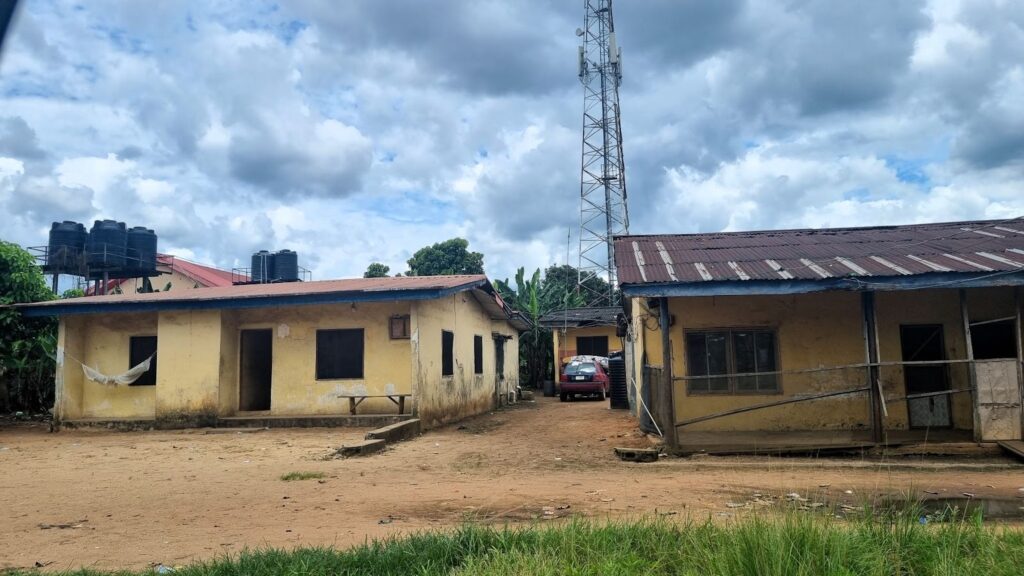
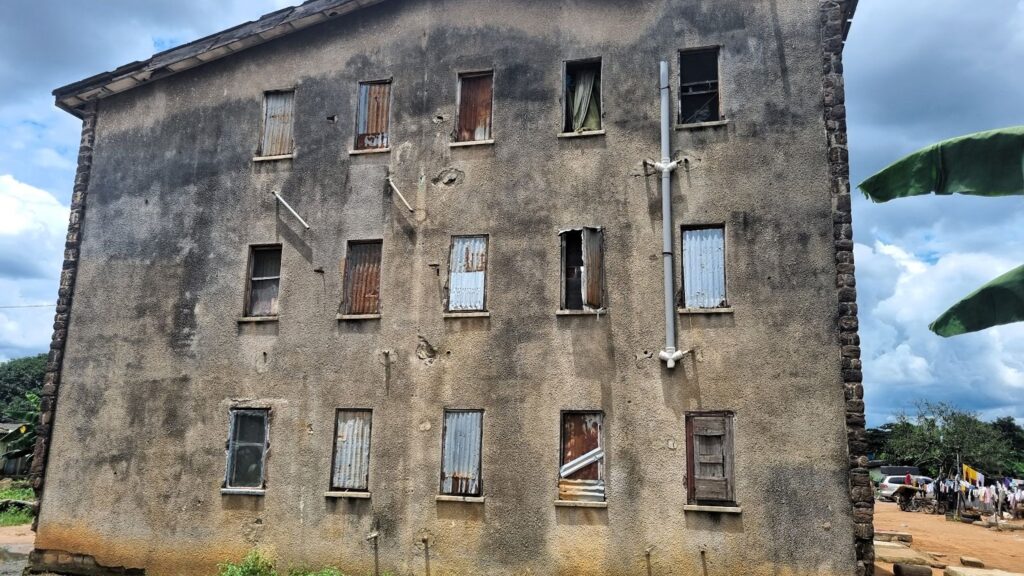
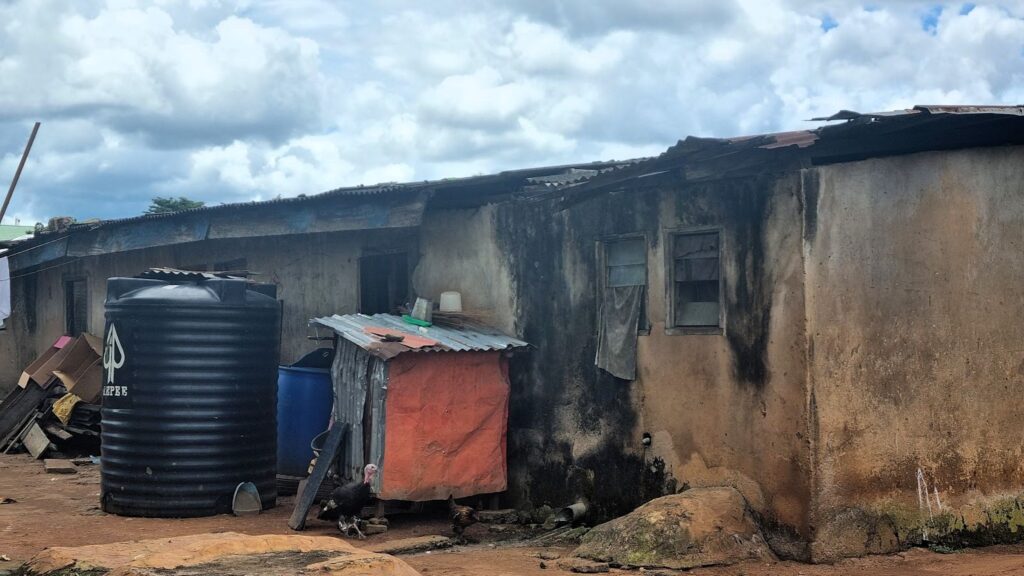
Meanwhile, the aim of the separatists, according to a high-ranking officer within the Nigerian Army familiar with the trends, is to “decimate all infrastructure of security and law enforcement and even civilian and traditional authorities” and then impose their own structures. In many parts of Imo and Anambra, he said, there is no presence of law enforcement whatsoever as police stations have been abandoned and IPOB has taken charge of governance. He added that this is because the country is “grossly under-policed”.
So, when locals observe that the insurgents are “almost invincible,” they conclude that it is better to align with them “because the government seems quite incapable of handling them”.
He suggested that peace will only be restored when government officials at the state level have the political will to tackle the problem and people in the affected communities themselves rise against the insurgents — the same way people in northeastern Nigeria did against Boko Haram terrorists through the Civilian Joint Task Force.
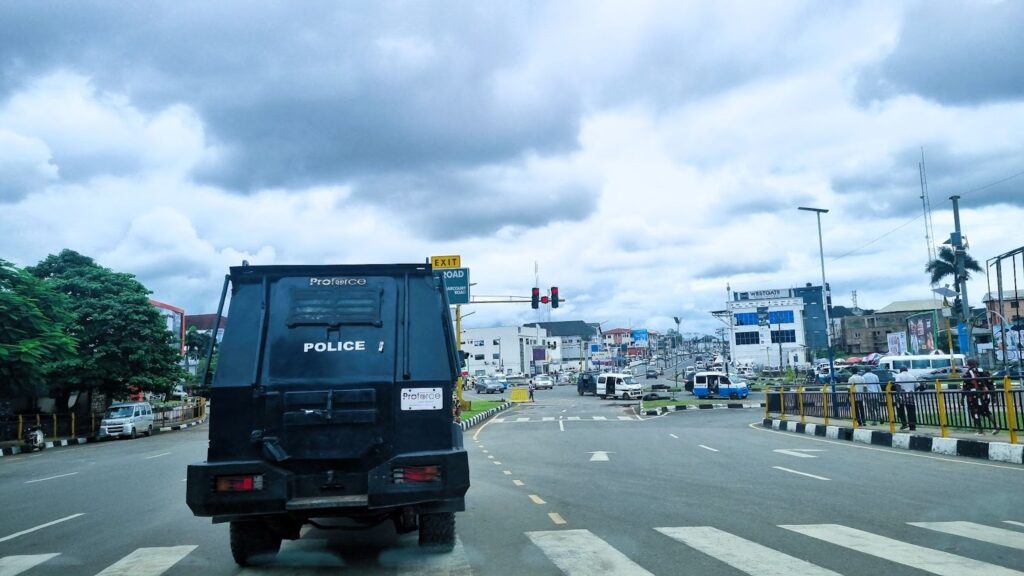
Inside a fundraising meeting
When Ekpa concluded his speech during the special fundraising meeting in June, BRGIE Finance Minister Ogechukwu Nkere set the ball rolling by donating $1,000 as other members hailed his generosity. “Today is a special day,” he said, smiling broadly.
He then yielded the microphone to Raphael, the Deputy Information Minister, who asked people willing to donate to raise their hands. The first volunteer was Kelo, a bespectacled elderly man spotting a healthy grey beard, who announced a donation of $1,000 to great excitement. Then, someone else donated $500. More and more rolled in, ranging from as little as $10 to as much as $2,000. The donors were also diverse, including both sexes and ranging from young adults to senior citizens.
Even though Ekpa said the meeting was not well publicised, a new person requested to join every few seconds at the start. Two hours in, there were 65 participants. As some people dropped off the call after making their contributions, others joined the waiting room.
Donors are usually encouraged to put on their webcams, and many oblige. Only a small fraction — usually about five out of hundreds — of donors through the liaison offices request to be anonymous. The rest give out their names, believing that being in the diaspora shields them from prosecution. The Finance Minister once bragged about having a “blessed” U.S. passport.
While giving the vote of thanks at the June 30 meeting, Ada Zion, another top member of the group, observed, “They said, oh, if you give one more money, we will send their squad devil. He said let them come, I will face them. And by the special grace of God, we are in the U.S.; they cannot do nothing.” “Yes!” cried another participant.
Sometimes, you can hear members mentioning a currency called ejemma. These are basically manillas, an ancient c-shaped legal tender made of bronze or copper and used by West African civilisations in the pre-colonial era — especially during slave trades with British, French, and Portuguese people. They are similar to the bronze rings used in Europe thousands of centuries ago. During the Nigerian Civil War, Biafra carved this object into aluminium 2½ shilling coins and included it in the five shillings note. Today’s Biafran secessionists have revived the symbol and say one ejemma is equal to one USD.
The fundraising meetings usually go on for over three hours. So, to beat back the tediousness of the routine, they spice them up with songs, hymns, and banter. It often feels like a meeting among friends rather than a formal event. There is an all-woman choir group that jumps in after significant money has been raised. Sometimes, even the donors themselves show off their musical talents before announcing a figure.
Lulls in donations are filled with monologues or recorded speeches by Simon Ekpa and Nnamdi Kanu, or videos of demonstrations by the armed militants back in Nigeria.
During the special fundraising event in June, the group played a video of US Vice President Kamala Harris where she described the United States as a “steadfast supporter of the principles that people have a right to choose their own form of government” and said the “sovereignty and territorial integrity of all states must be respected” — remarks she made at the Ukraine Peace Summit two weeks earlier.
It followed this with a video of Simon Ekpa advocating self-preservation while sitting in front of a line-up of flags: Biafra, Israel, Finland, the United States, and Ambazonia.
“Today, the Biafran Liberation Army have neutralised dozens of these terrorists in our land, and we are proud of them. They will continue to go down,” he said emphatically. “Our demand is very simple: pull them out of Biafra land. Remove every checkpoint. If you do not dismantle all the checkpoints, they will continue to die.”
Afterwards, they played a flattering musical commercial for Ekpa before resuming the donations.
During the June meetings, they also enjoyed mocking General Christopher Gwabin Musa, Nigeria’s Chief of Defence Staff. Musa had talked about the external support IPOB was enjoying and accused the Finnish government of supporting Simon Ekpa during a special Democracy Day TV broadcast.
At the separatist group’s fundraising meeting three days later, one of the videos played repeatedly was a clip from Musa’s speech. It had been turned into a meme with laughter in the background and both a tongue-out emoji and a smiling picture of Ekpa plastered on top. Calls to “make Musa cry” seemed to inspire bigger donations.
This was followed by a video of Ekpa saying, “The more you provoke us to do things that will shock the world. You see, today, we are well-armed and this is not the time when you come to our land and do anyhow and go free.”
A few minutes earlier, they had played a video of armed BLA fighters moving through the Eke Ututu market in the Orsu area of Imo, one of the group’s strongholds. “Who say men no day? Men dey!” they chanted.
Other times, the BLA fighters are shown doing a military parade in their dozens or engaging in combat and gun handling training in their forest hideouts.
Because the details of the meetings are publicised, sometimes unwelcome guests make their way in. These could be people who belong to a rival IPOB sect or others who just want to disrupt the proceedings. When this is noticed, the event hosts quickly kick them out.
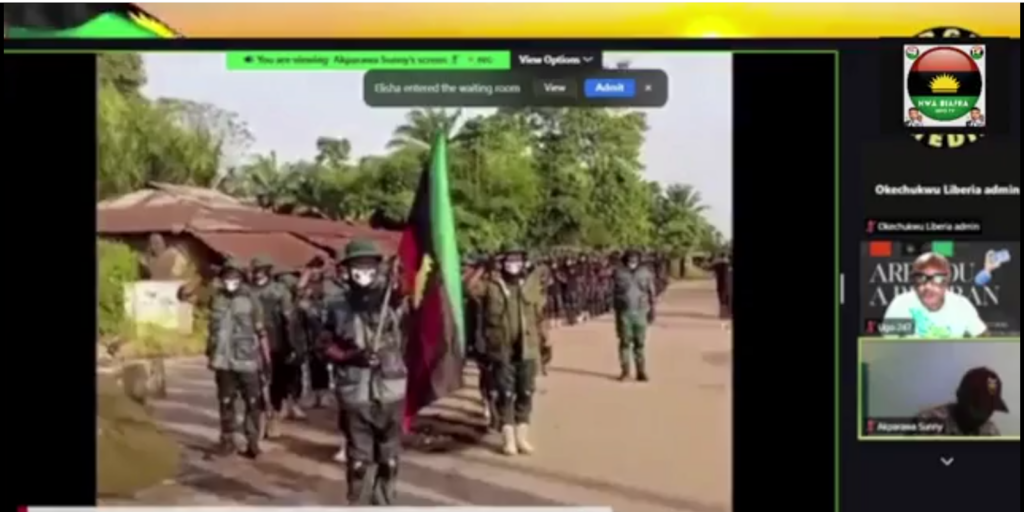
Multiple revenue streams
Sovereignty is a contested issue all over the world. There are tons of people seeking independence from recognised countries. In Africa alone, there are nearly as many separatist movements as there are countries. Some of them — like movements in Cameroon, the Democratic Republic of Congo, and Eritrea — have formed governments in exile, claiming to be the legitimate political authorities while having officeholders residing in a foreign country.
Because BRGIE is positioning itself as a government in exile as well, it has put in place an elaborate political structure. As Prime Minister (even though it is not clear if there ever was an election), Simon Ekpa sits at the top of this pecking order. The administration has at least 106 officials under different ministries, departments, bureaus, and liaison offices, according to its website. There is a Ministry of Finance, Bureau of Firearms, Police Department, Homeland Media Department, Social Services Department, and so on.
The organisation has an extensive network of liaison officers who coordinate member activities all over the world. There are 29 liaison offices in the United States alone (where it also has its headquarters) and then 77 more in other countries.
Fundraising is often done through these liaison officers. Members make payments through any of the several channels and send them receipts of the transactions. Then, they remit the donations to BRGIE’s central account. For members who live in Nigeria, donations are made through officials of the “de facto homeland government” distributed across different states, who also remit to the central account.
The donations come with different tags. Some are paid as Biafra Liberation Tax (BLT), which is paid weekly or monthly. Some are specified as contributions towards the Biafra Liberation Army (BLA).
While the regular meetings are held every Saturday, other fundraising events are conducted, too. These include the June 30 special fundraising mentioned earlier. The group also organises town hall meetings with the Prime Minister for members in various countries. At these often virtual events, members from those countries are encouraged to pledge donations for “PM kola (or breaking of kola nut),” “PM’s visit,” “unveiling of cake,” and other creative categories.
Monies are paid in all sorts of ways: wire transfers, cryptocurrency, and so on. Some of the fintech platforms used are Cash App, PayPal, and Zelle.
In the live streams shown on the Biafra Unite YouTube channel, an announcement is pinned at the bottom of the page, encouraging audiences to donate to the channel through Paypal. “Or better still, use super thanks or stickers,” it adds, referring to donation features introduced by YouTube for creators.
“Every state has a Telegram de facto group, and with that group, you can meet your admin, and from there, you can make your donation … Visa or Mastercard or cryptocurrency or PayPal. Very soon, we will also enable Google Pay,” Aniebiet Archibong (Akparawa Sunny), the information minister, announced during the June 8 meeting.
In late February, the group announced the launch of Biafracoin, a cryptocurrency touted as equal to one US dollar, “for easy savings and wealth creation for Biafrans”. Its leader claimed that people with the coin could buy goods from China and also stood to receive an extraordinary return on investment of 18 per cent.
“One unique thing about this family [Russia] is that they do their support through the Biafracoin. They pay in with the Biafracoin direct. So, this is ejemma sophisticated,” Raphael, one of the cabinet members, bragged in June.
The group has found other ways to generate funding, too.
It charges $100 for ID card registration and charges money for physical events. For example, members who wish to attend the Finland convention in December have to pay $300 for the ticket, which does not cover hotel and feeding expenses. It has multiple e-commerce platforms where it sells branded products. It asks members to lend it money (between $1,000 and over $101,000) under a special IOU contract, which they get back with 100 per cent interest “when freedom is restored and Biafra government is fully established in the homeland”. It invites members to pay $20 to participate in a raffle draw and stand a chance to win $5,000. It plans to start issuing operational licences to businesses in eastern Nigeria from December 2024. It is almost as if a new scheme is announced every month geared towards raising funds.
Thanks to its physical presence in Nigeria, BRGIE also gets revenue from extortion and regular levies from traders (such as marketwomen in Orsu). In many communities in the region, wedding ceremonies and funeral rites cannot be conducted until the armed group is paid.
Another major source of revenue for them is ransoms from kidnap victims.
“They can demand up to ₦20 million, ₦30 million. And you don’t pay the money in naira; you have to go to Ama Hausa [BDC] and change it to dollars. And, you know, once you change it to dollars, 20,000 dollars will not be big. You can easily fold in a wallet and take it to them,” said Felix, the police officer in Imo.
Victims who are unable to meet the ransom demands are often killed.
Felix explained that during the early days of the insurgency, the militants also levied traditional rulers and first-class chiefs. Those who refused to pay were either killed or kidnapped, forcing many of the community leaders to relocate to the capital city or other states.

Money has always been a contentious issue within IPOB.
SBM Intelligence reported that “control and money” were at the heart of IPOB’s splinter between 2020 and 2021. The detained former leader, Nnamdi Kanu, had forced his deputy, Uche Mefor, out of the group because he asked for an account of expenses.
The rift between the Directorate of State and Autopilot following Kanu’s arrest also featured various allegations of one faction trying to capture the paying members of the other or mislead people into paying into different accounts. When the Finnish police arrested Simon Ekpa in February 2023, it was because the authorities were investigating allegations of a “money collection offence” — which a rival IPOB faction claimed responsibility for.
The fight over money is reflected in the existence of these two domains: www.ipobinusa.org and www.ipobusa.org. While they both look eerily similar, they belong to different IPOB factions. The first one was registered in 2018. After Ekpa’s group hijacked it, the DOS faction moved its business to the second domain in 2022, retaining most of the site design — especially the landing page.
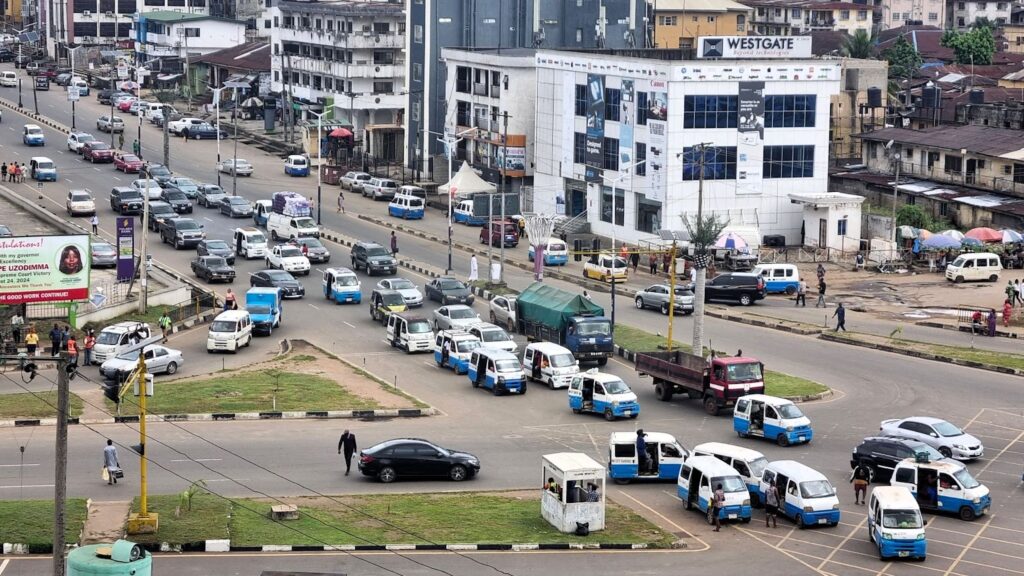
How’s the money spent?
On Thursday, Oct. 12, 2023, the BLA’s chief commander, a man known as Gentle, released a video statement. Gentle, who claims to be a certified pilot, spots locked hair and beard with one half typically dyed in brown. Like in several other videos he has recorded, he is wearing an army uniform and holding a pistol. In this video, he stands in the middle of a road, flanked on all sides by masked footsoldiers, most of whom are carrying assault rifles. Behind him is a shiny BLA-branded Hilux with a Biafran flag on the windscreen. There are at least two other similar trucks lined up at the back.
“I want to use this wonderful opportunity to appreciate all our people, both in [the] diaspora and at home. I want to appreciate once again all lovers of Biafra all over the world,” Gentle announces.
He has not been around, he says, because he travelled to receive these cars from his “government”. He warns that he is about to travel again — finally, finally — and will be returning “with hell”.
“I come again; I am about to travel. Now, I will make the world understand my capability. I am going to let the world understand my level in this society,” he screams at the camera.
A source within the Nigerian Army believes this video reflects how the armed separatist group obtains weapons from the black market. “Yes, some of the arms are gotten from attacks on security and law enforcement agencies, but a lot of them still are gotten from across the border,” he said. The source further explained that IPOB’s dalliance with Ambazonian rebels, who are also fighting for an independent state in western Cameroon, helps them to smuggle in arms from the neighbouring country.
“At one point, they were also exploring the possibility of getting from the northern areas. Our borders with Chad and Niger, there’s a lot of ungoverned spaces there, so a lot of arms come from those angles.”
According to the source, the group also relies on locally manufactured arms, including those as advanced as the AK-47 in semblance.
Meanwhile, insurgencies do not thrive on the thickness of their armouries alone. The fighters also need to win people’s hearts. And so, some of the resources gathered by the separatist group go into providing social welfare packages.
In one ‘emergency’ video broadcast in July 2023, Ekpa said they were working on “possible palliatives” to ease the suffering of people participating in a forthcoming two-week sit-at-home protest. The plan was to give at least $10 to each household.
“Every person has to be part of giving palliative to Biafran families, especially those less-privileged families that need support. So we are going to make it possible that you can choose how many families you want to feed during this sit-at-home … if you choose 10 families, that is $100; if you choose 20 families, that is $200; if you choose 50 families, that is $500.”
This, he said, was a test of his follower’s loyalty and toughness.
Later, he tweeted videos of the said palliatives being distributed. Each woman featured in one post received about 5kg of rice poured into plastic bags branded with photos of “Prime Minister” Ekpa and Nnamdi Kanu. They also had photos of Chukwuemeka Odumegwu Ojukwu and Philip Effiong, who led Biafra during the civil war with Nigerian federal forces in the 1960s. Another video showed cash being handed to an old man.
Ekpa would claim in December that they spent over ₦85 million on this exercise.
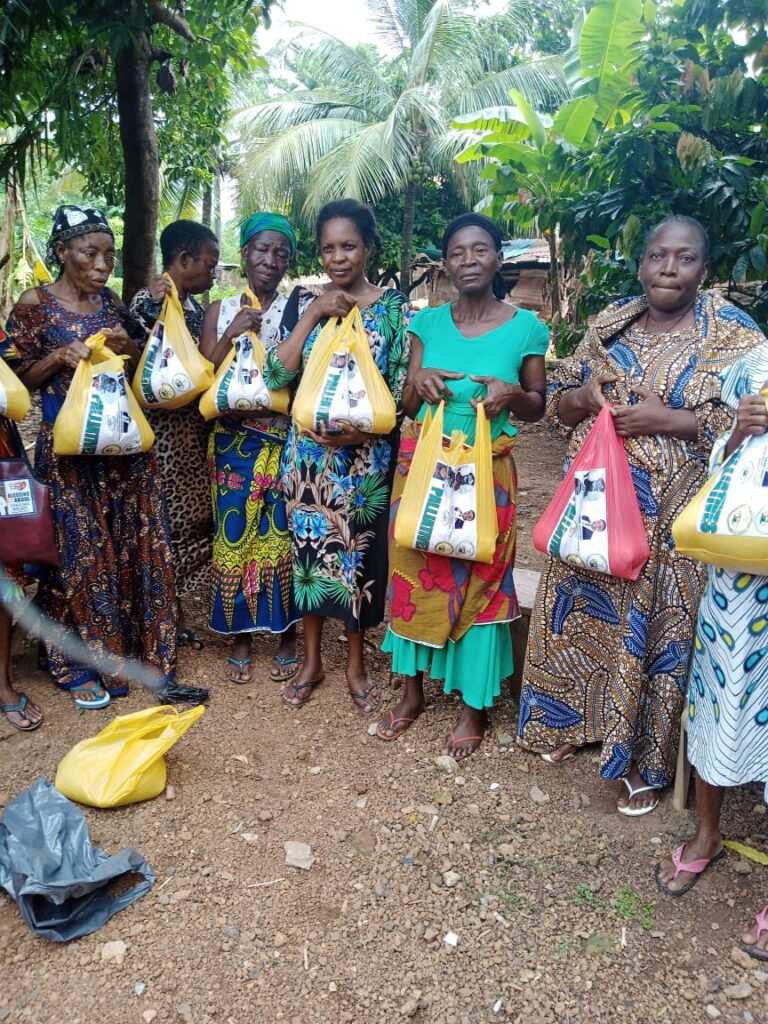
IPOB also spends huge amounts of money to pay lobbyists to discredit Nigeria and get international recognition for Biafra. In 2021, under Kanu’s leadership, the group paid an American lobby firm, BW Global Group, $750,000 to win over the U.S. government’s and policymakers’ support. Before this arrangement, it had paid another firm $1,025,000 for a similar deal.
Ekpa has continued this tradition of working closely with U.S. lobbyists. In June, he hired Moran Global Strategies to get the U.S. government to support Biafra’s independence — for a monthly fee of $10,000.
“Aga aku Nigeria igwe [we will do crazy things to Nigeria]; where we are going, we will scatter Nigeria, before 2nd of December. All we need is your support, financially and otherwise,” Ekpa declared during a town hall meeting for members from Italy on June 9.
“Where they are going to stop is where we are going to start, so the Biafra Defence Forces need your support like never before … it is not only about defending ourselves with guns; we have to also fight Nigeria diplomatically on the international stage. That is where we are now, and this needs your support like never before.”
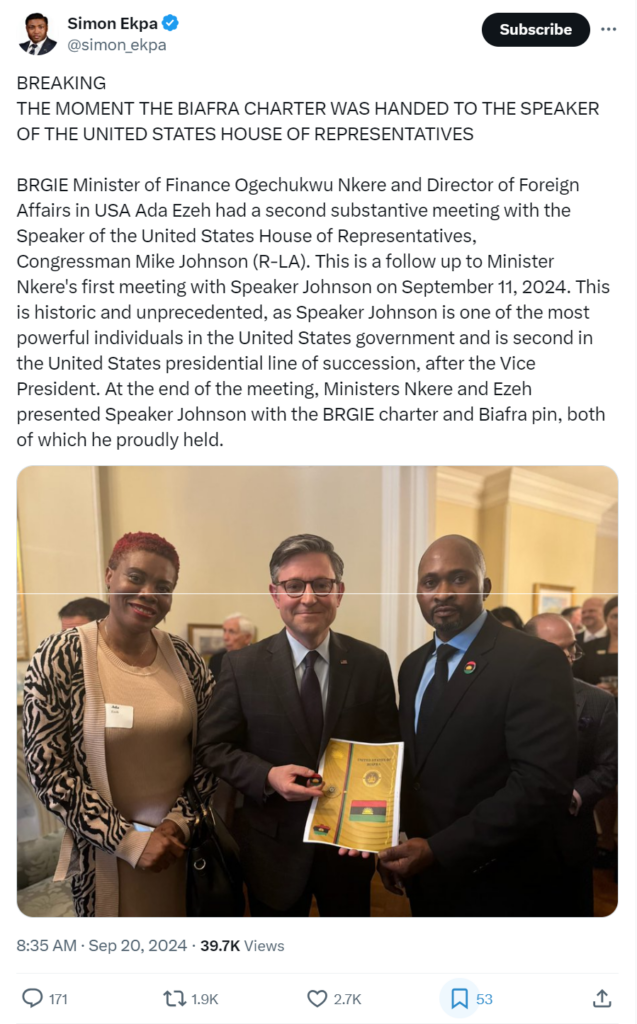
Disinformation and propaganda
Ekpa and his henchmen use a salad of strategies to maintain an influence over members of the group — including disinformation, hate speech, and fear-mongering. Essentially, the separatist leaders appeal to their members’ Igbo and Christian identities. They urge that they ought to be paying their tithes to the ‘altar of Biafran restoration.’
“Look at the janjaweeds. They are gathering. What you call the Ansaru, the ISWAP … they are already stationed in a place known as Kainji Dam, waiting for the time they will blow the whistle to finish our people,” Anthony Nwiboko, the Deputy Secretary of Foreign Affairs and Diplomacy, said while giving closing remarks during one of the weekly meetings.
“Christians, come and understand that you should do like the Christianitas in 380 after the death of Christ [AD]. Let us fight the people that are fighting us. You cannot use chaplet and holy water to fight somebody who is using AK-47.”
A similar narrative is that the rest of Nigeria is holding the easterners back. Their arch-enemies are the Fulanis, an ethnic group predominant in the North and reputed for being cattle-grazing nomads. They weave a yarn of “Islamisation” by the Fulani people and other groups. They also distort events and exaggerate attacks on Christian communities to paint a pattern of deliberate genocide that leaves them no choice but to secede if they are to survive.
Many of the false claims that are circulated on social media platforms also filter into the fundraising meetings.
During the June 23 meeting, one member, while expressing satisfaction with the work the cabinet members were doing, congratulated others “on the recognition [of Biafra] by the U.S. Department of Justice, giving the PM and the entire that recognition”. He was only echoing information passed down by Ekpa that BRGIE is “now an officially registered entity” with the U.S. government.
CDD West Africa, however, wrote to the Department of Justice and found this claim to be false.
The group has claimed that Nigeria’s Vice President, Kashim Shettima, is the head and founder of the Boko Haram terrorist group and that Nigeria’s former President, Muhammadu Buhari, died and was replaced with a look-alike.
“We all know that the former president passed away. Yeap. It happened. Sometimes, it’s hard to say, but we have to say it. And they put a statue there. They had to do their magic and find somebody that [was] even playing soccer. Yes, one time, I saw a video that they post[ed] on WhatsApp where the former president was juggling ball, was playing soccer, at the age of almost over 80 years old, and you tell me that that is the same man,” said Ogechukwu Nkere.
Both the picture at the root of the Shettima-Boko Haram conspiracy theory and the ‘Buhari clone’ claim have been debunked.
Ekpa has also repeatedly shared misleading pictures on Twitter, supposedly showing attacks on Nigeria’s security agents. Those pictures have instead been found to have been shot outside Nigeria, in places like Syria and Togo. Another interesting narrative he has constantly pushed is that millions of people from eastern Nigeria have voted for secession in a self-referendum exercise conducted physically and online — 50 million as of the latest count. However, the group has presented no evidence to support this claim.
“They deploy a lot of propaganda. If you remember, Nnamdi Kanu would go to museums, you know, in the UK, that are open to the public, war museums, and then he would show tanks and say he has just bought tanks, and the gullible ones would believe it,” said the Nigerian Army source. “They would go to the European Parliament — where anybody can walk there and say they want to submit this thing — and they tell you it was a submission of and recognition of the state of Biafra.”
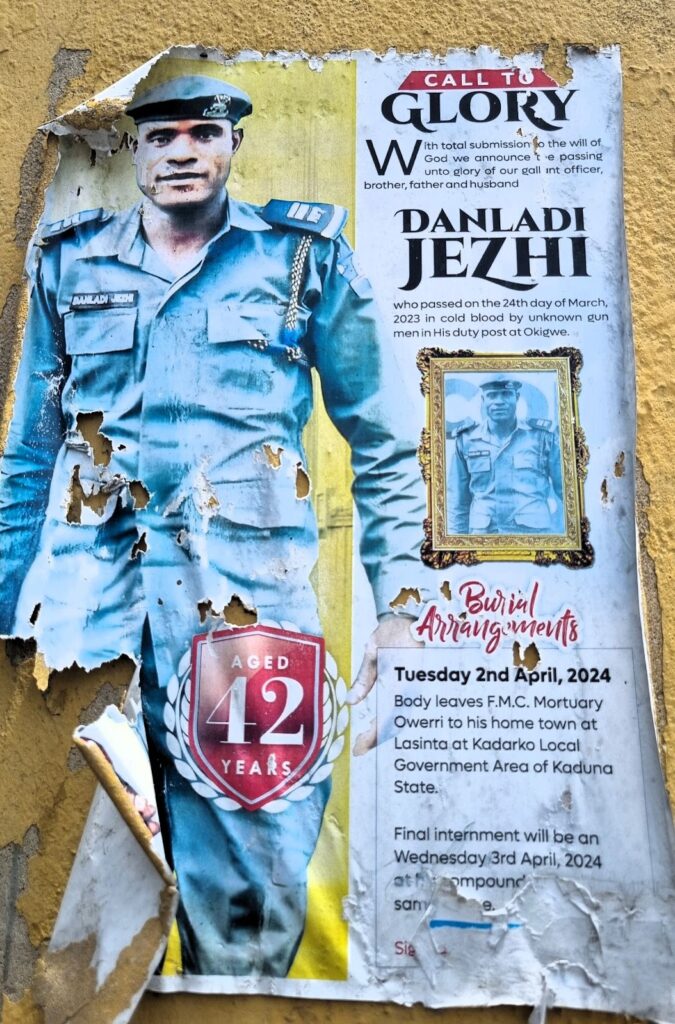
‘Obey is the last order’
One of the things that drew people to Nnamdi Kanu was his biting, unbridled rhetoric. He often spoke of war, but IPOB remained largely non-violent under his leadership — at least up until the historic anti-police brutality #EndSARS demonstrations in 2020. Ekpa makes it clear that his style of leadership is different.
“Today, they are telling you Mazi Nnamdi Kanu is the one who is a civil man and all that. I agree with them. The point here is that I am not Mazi Nnamdi Kanu. I am Simon Ekpa, and I fight my own freedom differently from Mazi Nnamdi Kanu. They should understand that,” he said in June, while reacting to comments passed by a lawyer on a radio show. Asked about Ekpa’s celebration of the killing of soldiers and police officers on social media, the lawyer had called him a “criminal element” who should be brought to justice.
In his response, Ekpa said that while IPOB members were killed without consequences when Kanu led the group, that would not happen under his watch.
“I am posting the images I am posting because we are at war with Nigeria. What is so difficult to understand? … If you come to Biafraland to kill, you will die there … Call me all manner of names, I will be the end of Nigeria. We are picking up these arms; you think it is going down?” he scoffed. “I am still sourcing for weapons, sourcing for ammunition. For those who care to support Biafra, our doors are open.”
Another point Ekpa is emphatic about is that his war is not only against state forces.
“Those facilitating and aiding and abetting them by their actions and comments on radios and television will have the Biafra people to contend with very, very soon,” he threatened.
“After this December, you will know that mmiri oku n’egbu mbe [hot water kills tortoise]. All of you that have spoken against me, all of you that called me criminal without any evidence, all of you that have shouted under Nigeria just because of your selfish greed … I will wait for you in Biafraland. We are keeping records. All of you from A to Z, we are going to pay for struggling to stop me … After Biafra has been restored, you will have a question to answer if you make it alive till then.”
In a different video, he asks people who do not want to be part of Biafra to leave because the new dispensation would not be conducive for them.
If it is not clear just how wide Ekpa is casting his net of enemies, his Finance Minister seems to think it includes Igbo people who refuse to support their cause. Towards the end of the June 23 fundraising, Nkere gave a long speech to remind everyone how serious the group was about seceding.
“And for fellow Biafrans that are watching, if you are one of those idiots that refused to do the needful, you heard our Prime Minister, we will deal with you all. Ihe ga abianu [what will come will be severe].”
While statements like these suggest they are gearing up for a bigger war in the future, the ongoing crisis in southeastern Nigeria continues to kill people — both from the warring parties and innocent civilians who have had their hometowns turned into bloody battlefields.
Even if others, including Nigeria’s political class, are not taking IPOB’s uprising seriously, it doesn’t change the harsh reality faced by security agents and locals in the region. “You think it’s a joke?” Felix, the police officer in Imo state, once asked me with the sternest expression after a question I asked had betrayed my naivete.
When he is working, Felix moves around with an assault rifle. When he is not, he carries a pistol he bought himself. But it is not enough. He is keenly searching for protective amulets — stronger ones. He is also never too far away from a bottle of beer or a joint, even when on duty. I asked him if this was a coping mechanism, considering the increased pressure from his work, but his answer was not direct.
“You know, in that kind of operation, you need to do whatever you have to do to be alert, whatever you have to do to keep your head up,” he replied.
He had just completed a night shift, and his eyes looked tired. But there was something else there, too, beneath all his bravado. Fear?
“We have to sacrifice due to the love we have for our country, because obey is the last order,” he continued. “You have to obey the last order. You have to carry out your duty … so you go there, you perform your duty, you go back, and you wait for the next time you will be called upon.”
Felix knows all too well that the next time may be his last.
The reporting for this piece was supported by a grant from the Institute for War & Peace Reporting‘s Voices for Change project. An abridged version can be found here on their website.
Members of an armed separatist group in Nigeria, led by Simon Ekpa, are actively raising funds for their operation called the Biafra Republic Government in Exile (BRGIE) through fundraising meetings organized globally. This group, an offshoot of the Indigenous People of Biafra (IPOB), collects funds aggressively for their militia activities, which include conducting attacks on security agencies and civilians in southeastern Nigeria.
Despite internal conflicts and splintering within IPOB, Ekpa's faction remains notorious for its violent methods and strategies, including claims of weapon purchases and imposing unlawful levies on Nigerian communities.
Ekpa, who once held a leadership position in IPOB, is now positioned as the face of this separatist movement. His group organizes regular virtual fundraising meetings, drawing substantial donations from supporters worldwide under different pretexts.
These donations are primarily funneled into arming their militias and maintaining a strong influence in the region. The Biafra Republic Government also explores alternate revenue sources like cryptocurrency launches, merchandise sales, extortions, and international lobbying, which contribute to their growing financial base and audacious operations.
The violence perpetrated by this group has significantly contributed to insecurity in Nigeria's southeast, with frequent attacks by the group leading to numerous civilian and officer casualties. The Nigerian authorities continue to grapple with this crisis, exacerbated by the alleged support the group receives from both local and international actors.
Despite concerted efforts, the group uses propaganda effectively to maintain loyalty among its members and challenge government forces, aiming to keep the secessionist cause alive amidst Nigeria’s complex socio-political landscape.
Support Our Journalism
There are millions of ordinary people affected by conflict in Africa whose stories are missing in the mainstream media. HumAngle is determined to tell those challenging and under-reported stories, hoping that the people impacted by these conflicts will find the safety and security they deserve.
To ensure that we continue to provide public service coverage, we have a small favour to ask you. We want you to be part of our journalistic endeavour by contributing a token to us.
Your donation will further promote a robust, free, and independent media.
Donate HereStay Closer To The Stories That Matter


